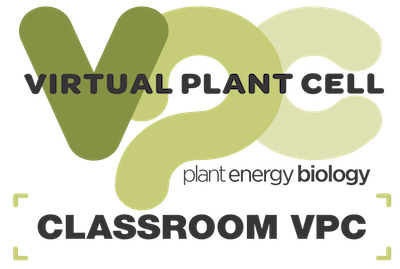Virtual Plant Cell: Classroom VPC (for Oculus Rift)

Produced By:
Plant Energy Biology
States:
Qld, NSW, SA, NT, ACT, Tas, WA
Aimed at:
Year 7
- 12
Curriculum 8.4
ACSBL044, ACSBL045, ACSBL049, ACSBL050, ACSBL052, ACSBL053, ACSSU149, ACSSU150
Curriculum 9.0:
AC9S7U01, AC9S8U01, AC9S9U01, AC9S9U02, AC9S10U01, AC9S10H02, AC9S9H02, AC9S8H01, AC9S9H01, AC9S10H01, AC9S7H01, AC9S7I04, AC9S8I04, AC9S9I04, AC9S10I04
Lesson Type:
Subjects:
Keywords:
virtual plant cell, virtual reality, VR, immersive learning, plant, plants, biology, cell, DNA, science, microscope, 360 degree video, organelle, membrane, mitochondria, chloroplast, vacuole, photosynthesis, energy, innovation, technology, plant energy
Virtual Plant Cell: Classroom VPC (for Oculus Rift)
This innovative teacher resource provides a unique and engaging way for students to explore the fascinating world of plant cells and their key structures.
With Virtual Plant Cell, students can dive into a virtual world where they can interact with and learn about the various organelles and structures found within a plant cell. The fully interactive experience is designed to run as a partnered or whole-of-class experience using the latest Oculus Rift VR technology. This allows students to immerse themselves in a virtual environment and experience a deeper level of engagement with the content, leading to a higher degree of comprehension and retention.
In addition to providing a fun and interactive learning experience, Virtual Plant Cell also aligns with the science curriculum for students in grades 5-12, making it an ideal teacher resource for science classrooms. It provides an opportunity for students to develop critical thinking and problem-solving skills, as well as encouraging collaboration and teamwork.
The Virtual Plant Cell program is created by the ARC Centre of Excellence in Plant Energy Biology, a leading research institution in the field of plant science. With its cutting-edge VR technology, this teacher resource offers a one-of-a-kind educational experience that will captivate students and provide them with a deeper understanding of the intricate world of plant cells.
www.plantenergy.edu.au/VPC
